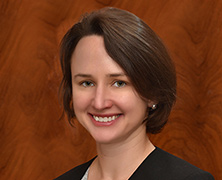In 2020, a Young Lawyer Needs Courage
I urge every lawyer to regularly and critically consider how effective lawyers look, sound, and behave. Are they assertive and confident? Scholarly and even-tempered? What does each of those look and sound like? Not to put too fine a point on it: Can you imagine a peak performance of lawyering by a person who isn’t white, male, gender- conforming, and physically able? Do the mannerisms, intonations, language choices, and thought structures strike you as “white” or “male”?
To be persuasive, must lawyers project confidence that their viewpoints are sound and ultimately correct? More fundamentally, must they speak with an implicit expectation that others will listen? On the flip side, how do lawyers honestly project those things if they have been shaped in part by shame, fear, alienation, deprivation, bullying, neglect, systemic and innate racism or sexism, stereotyping, or any one of the many social experiences that teach people that they are powerless, and that their powerlessness simply drowns out the effect of anything they may have to say?
There are many noble contenders for the foremost ideal of the legal profession, among them: fairness, intellectual honesty, and reason. Each of these is so important. But as I observe young lawyers (including me) develop against the backdrops of the Black Lives Matter and Me Too movements, the Trump presidency, and the unfolding reckonings that each of these is eliciting, I think the single most important quality in a young lawyer in 2020 is courage. It takes courage (and energy) to pay close attention, to say what you think, to disagree, and to risk disagreement. It takes courage to think, speak, and behave differently from those who seem to lead the profession. It takes courage to tell people with power that they have unwittingly hurt you or that the institutions they lead and love have done so, and it takes courage to ask for things. I have witnessed so many courageous acts along these lines in recent years, and I hope to witness countless more. I think the future quality and strength of the legal profession may depend on it.







